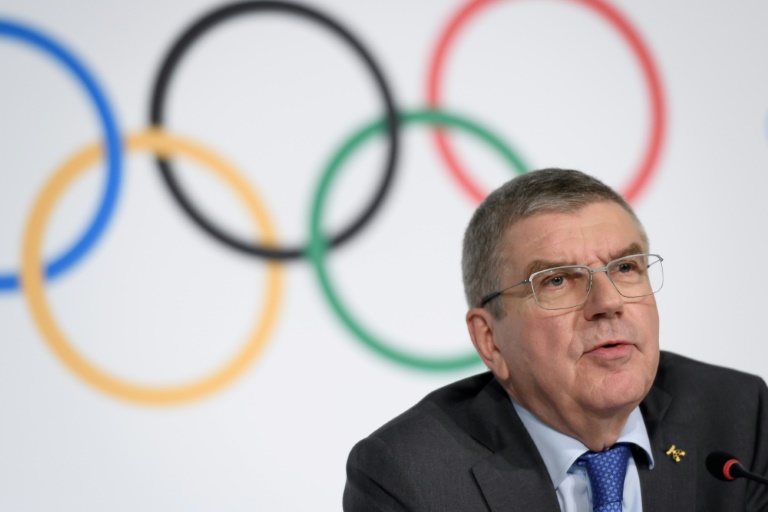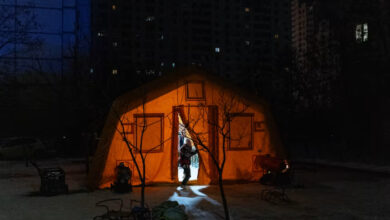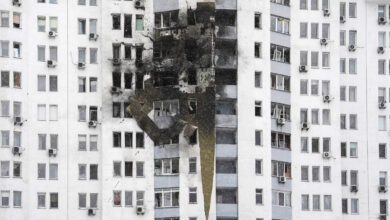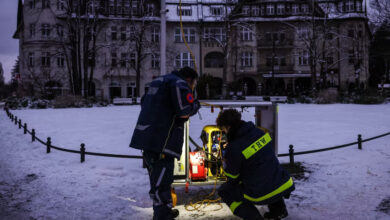
Russia will miss next year’s Tokyo Olympics and the 2022 Beijing Winter Games after the World Anti-Doping Agency on Monday banned the powerhouse from global sporting events for four years over manipulated doping data.
WADA’s executive committee, meeting in Lausanne, decided that Russia be handed the four-year suspension after accusing Moscow of falsifying laboratory doping data handed over to investigators earlier this year.
Not only will Russia be ruled out of the next Olympic cycle, but Russian government officials will be barred from attending any major events, while the country will lose the right to host, or even bid, for tournaments.
“WADA’s executive committee approved unanimously to assert a non-compliance on the Russian anti-doping agency for a period of four years,” WADA spokesman James Fitzgerald said.
Under the sanctions, Russian sportsmen and women will still be allowed to compete at the Olympics next year but only if they can demonstrate that they were not part of what WADA believes was a state-sponsored system of doping.
“They are going to have prove they had nothing to do with the non-compliance, (that) they were not involved in the doping schemes as described by the McLaren report, or they did not have their samples affected by the manipulation,” Fitzgerald said.
The independent report by Richard McLaren, released in 2016, revealed the significant extent of state-sponsored doping in Russia, notably between 2011 and 2015.
It led to the Russian Anti-Doping Agency (RUSADA) being suspended for nearly three years previously over revelations of a vast state-supported doping programme.
Full disclosure of data from the Moscow laboratory was a key condition of Russia’s controversial reinstatement by WADA in September 2018.
– ‘Attack on sport’ –
The WADA decision was widely predicted, with the body’s president, Craig Reedie, having made a presentation Saturday to the Olympic Summit, participants of which “strongly condemned those responsible for the manipulation of the data from the Moscow laboratory”.
“It was agreed that this was an attack on sport and that these actions should lead to the toughest sanctions against those responsible,” the IOC said in a statement.
“It was stressed by the participants that full justice must be finally done so that the guilty ones can be properly punished and the innocent ones are fully protected.”
The IOC (International Olympic Committee) asked that the Russian authorities deliver the “fully authenticated raw data”.
Former WADA president Dick Pound, who chaired the commission that in 2015 made damning accusations of mass doping in Russian athletics, said Moscow had this time gone “too far”.
“The IOC is a little bit tired about what Russia has been doing and so I see the IOC probably focusing more on athletes who are newer,” Pound told AFP.
Pound acknowledged the influential role of Russia — which in recent years hosted the 2014 Sochi Winter Olympics as well as the football World Cup in 2018 — “on many levels” in the sporting world.
“On the field of play, it is a big, important country. With China and the United States, it’s among the sporting giants, so that’s influential,” he said.
“It’s (also) influential because Russia hosts and is willing to host many competitions for international federations, especially those who don’t have much money of their own, so they have a considerable influence among the international federations.
“And they’ve been quite strategic about making sure that they get Russians into positions on international federations. So they have an impact from inside as well as from outside.”
– ‘A mockery’ –
A majority of WADA’s influential athlete committee had called overnight for a “complete ban on Russian participation”, nine members of the 17-strong group saying such a move was “the only meaningful sanction”.
“We maintain that the fraud, manipulation and deception revealed to date will only be encouraged and perpetuated with a lesser response,” they said.
“To date, the Russian doping saga has dominated three Olympic and Paralympic Games, with a fourth on the horizon. Russia’s ongoing and intentional acts of deception, fraud and corruption have made a mockery not only those who play by the rules, but those who create and safeguard them.”
Image: AFP/File / Fabrice COFFRINI International Olympic Committee (IOC) president Thomas Bach




